Elevate Communication (Elevate) is committed to limiting the risk of modern slavery occurring within its own business, infiltrating its supply chains or any other business relationship.The policy applies to all persons working for or on behalf of the Company, in any capacity, including employees, directors, officers, agency workers, contractors, consultants and any other third-party representative. Elevate expects all who have, or seek to have, a business relationship with the Company to familiarise themselves with this policy and to act in a way that is consistent with its values.The Company will only do business with organisations who fully comply with this policy, or those who are taking verifiable steps towards compliance.This policy will be used to underpin and inform any statement on slavery and human trafficking that the Company is required to produce further to the transparency in supply chain requirements of Section 54 of the Modern Slavery Act 2015 (MSA).
Modern slavery can take many forms; it is a complex and multi-faceted problem. The Modern Slavery Act (MSA) 2015 covers four key criminal activities:
•Slavery: where ownership is exercised over an individual
•Servitude: involves the obligation to provide service imposed by coercion
•Forced and compulsory labour: all work or service, not voluntarily performed, which is obtained from an individual under the threat of force or penalty
•Human trafficking: involves arranging or facilitating the travel of another with a view to exploiting them
Other forms of modern slavery, which will not be tolerated but are not specifically referenced in the MSA, include, but are not limited to:
•Child labour: whilst not always illegal in the jurisdiction in which it takes places, child labour involves the employment of children that is exploitative or is likely to be hazardous to or interfere with a child’s education, health (including mental health), physical wellbeing or social development.All forms of modern slavery have in common, the deprivation of a person’s liberty by another in order to exploit them for commercial or personal gain and amount to a violation of an individual’s fundamental human rights.Tackling modern slavery requires colleagues to play a part and remain vigilant to the risk in all aspects of Elevate business and business relationships.
To underpin the commitments laid out in this policy, Elevate aims to implement the following measures:
•Elevate employs all its employees within Australia in line with all National employment standards (NES).
•Elevate does not employ virtual assistants in other countries to carry out any part of its Australian operation.
•Any companies that Elevate contracts/uses in overseas markets must demonstrate that they abide by this policy in regard to labour hire within their supply chain.
•The only country outside Australia that Elevate currently hires sub-contractors in is New Zealand and the agency engaged meets all local legal requirements.
•Elevate only purchases from suppliers that meet UNHCR conventions on slavery and trafficking and care is taken to investigate suppliers before entering into any supplier agreements in this regard.
•Were Elevate to become aware that a supplier was using any form of slave labour or engaged in any form of human trafficking at any level then any agreements in place would be cancelled and an alternative supplier would be sought, if the supplier could not/would not rectify the issue.
•The Company regularlyconductsrisk assessments to determine which parts of the business and which supply chains are most at risk from modern slavery so efforts can be focused on the areas that are most ‘at risk’.
•Where appropriate, as informed by the risk assessment, the Company will engage directly with new suppliers in respect of the Anti-Slavery Policy in order to gain a proper understanding of the measures they have in place to ensure that modern slavery is not occurring within their own businesses.
The Executive Board has overall responsibility for this policy and in ensuring that the Company complies with all its legal and ethical obligations.Communication and Employee Awareness TrainingLine Managers will ensure that relevant colleagues receive adequate training on this policy and any supporting processes applicable to their role. Breaches of This PolicyThe breach of this policy by an employee, director or officer of the Company may lead to disciplinary action being taken in accordance with the Company’s Disciplinary Procedure. Serious breaches may be regarded as gross misconduct and can lead to immediate dismissal.
All colleagues will be expected to co-operate to the fullest extentpossible in any investigation into suspected breaches of this policy or any related processes or procedures.If any part of this policy is unclear, clarification should be sought from the Managing Director.
This Anti-Slavery Policy will be reviewed by the Executive Board on a regular basis.This notice reflects the Company’s current practice. Elevate will update the notice from time to time to reflect legal and operational requirements.

If you’re looking for the ultimate partner to drive you towards your business goals, get in touch with our team.
